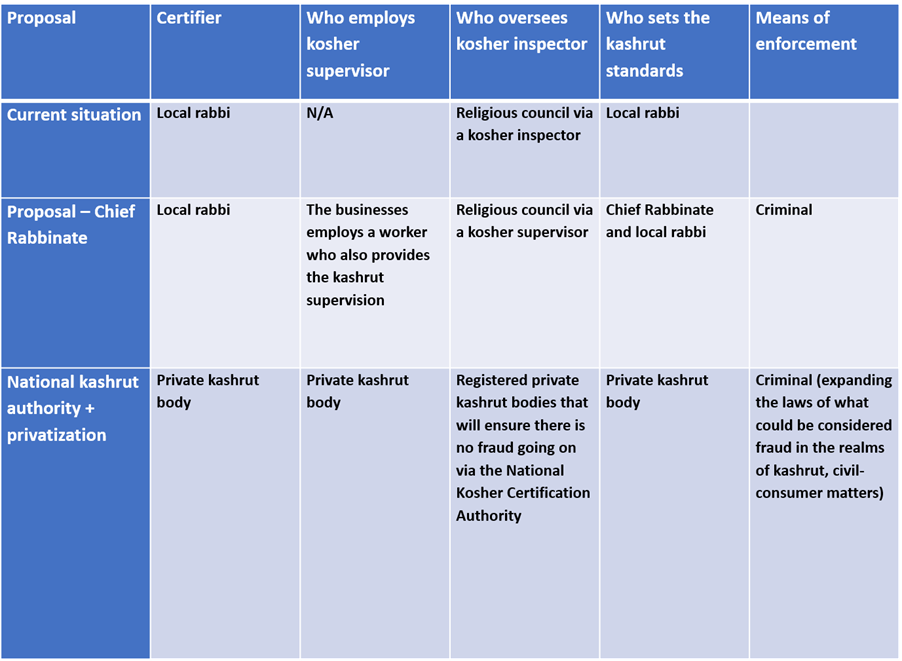Time to Privatize the Kosher Certification System
A new research study on kosher certification by the Israel Democracy Institute (IDI) finds that the current operational model of kosher certification, as has been mandated by law since the 1980s, harms the quality of kosher certification. The study reveals that the current model leads to ill-quality service for businesses and residents and higher-than-necessary pricing, which is passed on to the consumer.
The research found 10 functional and legal structural failures, including:
- The monopoly of the Chief Rabbinate on kosher certification impacts how much it costs to become kosher certified, as well as the level of kashrut and how well the certification process functions
- There are no unified standards. In every community, there are disparate kosher standards, which creates an impossible reality for restaurant chains with a number of branches
- Kosher supervisors are employed by the businesses, which leads to conflicts of interest with regards to the operation of the oversight
- Rabbis are forced to grant kosher certificates by law, even if they are giving them to establishments that behave in a way that goes against their conscience, for examples companies that host events at which people are immodestly dressed
- There is a lack of professionalism, in that many of the kosher certifiers are rabbis, but do not specialize in kashrut, and are therefore not experts in what is forbidden and permissible in the Jewish laws connected to the use of variant new technological tools
- Businesses with more than one kosher certification (for example, Rabbinate and Mehadrin) pay double or triple, leading to high costs
- There have been a series of critical reports over the years that found that kosher supervisors (mashgichim) don’t actually do site visits, despite being paid. They work in other jobs, sometimes with conflicts of interest, and are paid despite not following Ministry of Religious Services protocols
- A 2015 report by the Finance Ministry found that consumers swallow an average of NIS 600 million annually in extra costs due to the way that the current Chief Rabbinate monopoly is designed
Therefore, while the Chief Rabbinate is suggesting three cosmetic changes—increased use of technological aids, transferring the employment of the kosher supervisors to religious councils and appointing them to oversee kosher supervisors who are employed by the businesses, and transferring the setting of kosher standards to the Rabbinate (something that cannot currently be implemented administratively or by Jewish law) – they are like giving cups of spirit to the dead.
In order to grant better, cheaper and friendlier kosher certification, we must privatize the kosher certification system, break up the Chief Rabbinate’s monopoly, and rely on the unwavering market of 70 percent of Israeli Jews in the state who eat kosher food.
Highlights of IDI’s proposal for administrative arrangement and privatization of the kosher certification market:
- Kosher certification will be granted by private groups (such as Badatz)
- Those who grant kosher certifications will declare the level of kosher that they are providing and consumers will decide if they want to rely on it
- A national, independent kosher certification authority will be established, which will handle the administrative and consumer law aspects of kosher supervision, though not the Jewish law aspects
- This authority will supervise oversight policies and the service of the private certification bodies based on the standards they present
This proposal would terminate the Chief Rabbinate’s detrimental monopoly and open up the possibility for alternate kosher certification bodies to operate transparently. It will also professionalize the kashrut industry and its staff and save a lot of money that is currently being wasted on bureaucracy.
The survey was conducted by Ariel Finkelshteyn and Dr. Shuki Friedman through IDI’s Center for Religion, Nation and State.
Chart: Comparison of Different Kashrut Options

